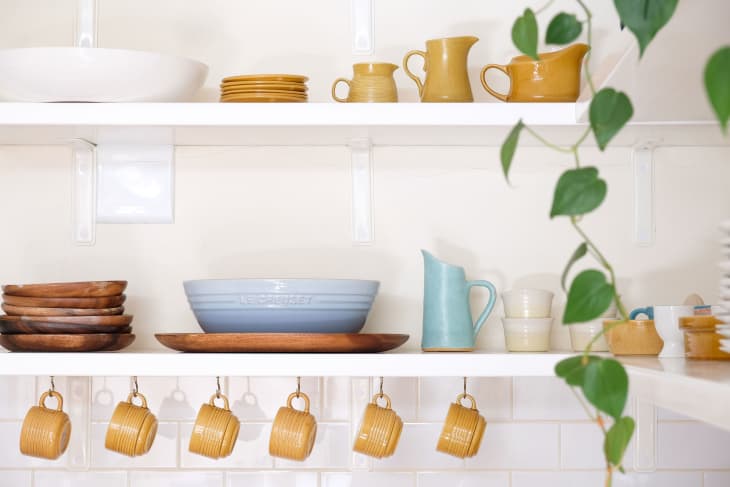The Key to Getting (and Staying) Organized Is Actually Owning Less Stuff, According to a Pro Organizer
Myminimalismjourney has been just that:a journey. I didn’t snap my fingers and suddenly have less nor was it a one-daydecluttering project. Instead, I’ve been slowly working on it for the better part of the past decade, the last half in which I’ve been aprofessional organizer. I can freely admit that it’s been both fun and challenging to learn alongside my clients.
的一个错误,很多人——包括我自己uded — make is thinking that to get organized, you have to have a home full of matching containers with labels and a strict system to keep everything tidy. Organizing products, clear labels, and a maintenance planarehelpful, don’t get me wrong.But the real key to getting and staying organized is to own less stuff to organize in the first place.
Another overlooked part of the process is focusing solely on the decluttering part. It should be done from time to time as things break, no longer fit, or are simply not wanted or needed. But, in the wise words of the organizational icon, Marie Kondo, always ask yourself what it is that “sparks joy” for you. I’ve found that turning my attention to filling my home with only the things I love makes it significantly easier to let go of the stuff I don’t. It also makes me think twice before shopping or bringing anything extra into my home.
If you’ve been on your own journey to get and stay organized, and purchasing a lot of bins or binge-watching a season of “The Home Edit” on Netflix hasn’t helped, try decluttering more. Here are five things to start with that you probably have in excess around the home.
- Linens, such as sheets and towels.Go through your linen closet (or wherever your linens might be hiding) and corral everything to a bed or the couch. Sort by type or sheet set and look for rips, tears, and stains. Whatever you no longer need, drop off at a local animal shelter (even if they’re not in perfect condition) as they’ll be incredibly thankful for the donation.
- Drinkware (coffee mugs, Yetis, and so on).Whenever I organize kitchens, this is one of the areas that we spend a lot of time sorting through. I get it, many of these things have sentimental value whether they’re a travel souvenir or a memory of an event. Look through them and decide which ones you enjoy drinking out of (aka the ones you actually use) and which you can part with to clear much-needed cabinet space. Donate the rest to a local charity or list it for free on your local buy nothing group.
- Beauty products.I’m guilty of buying a new shampoo or mascara before the old one is done and then leaving the old bottles in the shower or my makeup bag, creating excess clutter. What I’ve done to help deter this is creating a backstock basket and avoiding the temptation to open the shiny, new stuff before I need it. Once the bin is full, I can’t buy anything else. For the rest of the products, remember there is an expiration date. Go through old lipsticks, nail polishes, and serums, and get rid of anything that smells or looks funky.
- Clothing.Before shopping for anything new, peruse your closet and do an inventory check to see what you need in your wardrobe. Items that no longer fit or are no longer your style should go to donation or be sold on apps such asPoshmarkandMercari. I would advise keeping them in another area of your home (as long as it’s temperature controlled) so they no longer take up space in your closet while you wait for them to sell. And, while we’re on the subject, give yourself a deadline. If they don’t sell in X amount of time, consider donating or sending them toThredUP.
- Organizing supplies.I love a good stackable bin or drawer organizer as much as the next person but there is a time and place that they become clutter. Rather than continuing to buy products to help you tidy things, first let go of what no longer works for your space, style, or stuff. Specifically, the organizers that are made with less than stellar quality. While studier, more sustainable options are generally a bigger investment, the less you own, the fewer containers you’ll need to organize.

